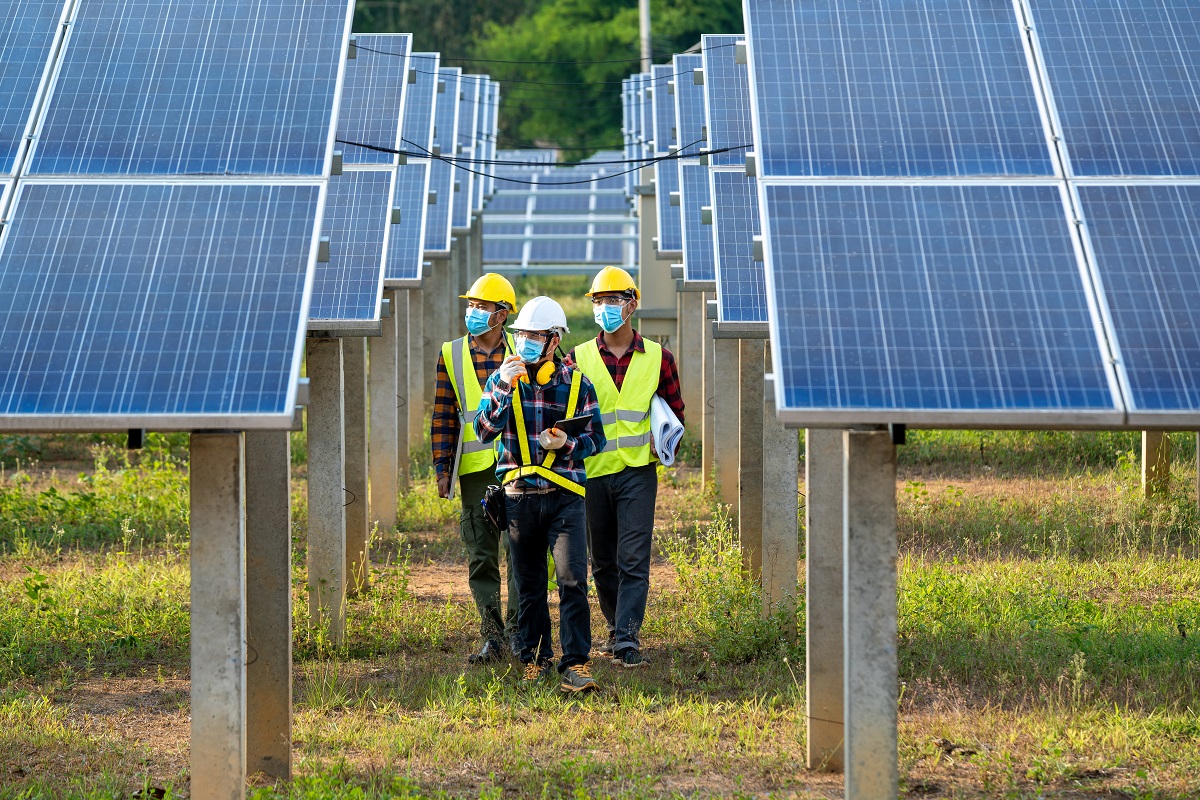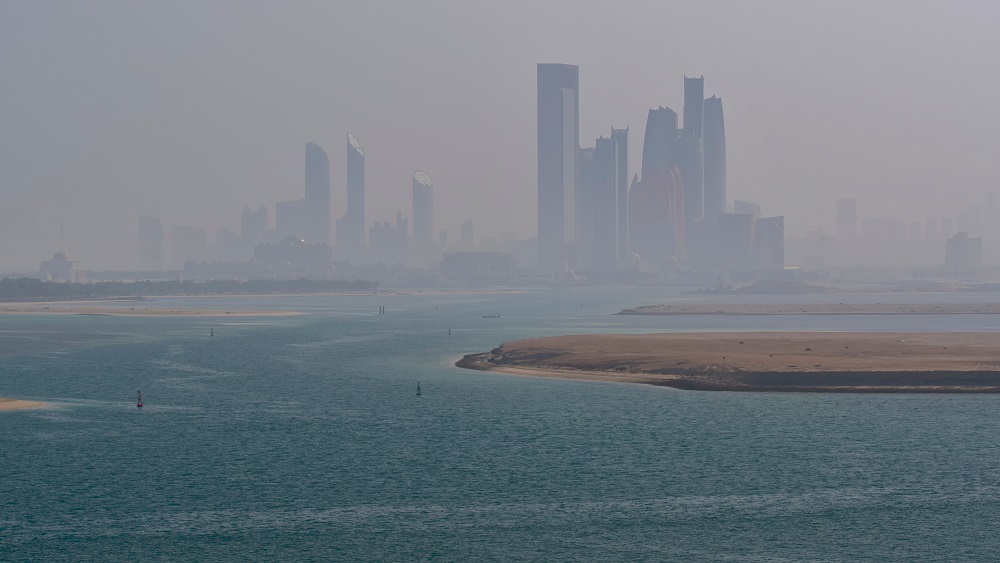
The implications of Covid-19 for energy and climate policy must not be overlooked
By Dr. Steve Griffiths
The global Covid-19 pandemic has rapidly overwhelmed our societies, shocked the global economy and overburdened struggling healthcare systems and other social institutions around the world. While such impacts of Covid-19 are critical matters, the implications of the disease for energy and climate policy also must not be overlooked.
In a Special Section for Elsevier’s international journal Energy Research & Social Science, Dr. Benjamin Sovacool, University of Sussex, Dylan Furszyfer Del Rio, Queen’s University Belfast and Khalifa University, and I offer insights on the emerging connections between Covid-19 and energy supply and demand, energy governance, future low-carbon transitions and social justice through own perspectives complimented by assessment and summarization of key findings from papers solicited for the Special Section.
Although ostensibly never intended as measures to reduce energy consumption, air pollution, or climate change directly, responses to the virus have had substantial connections with energy demand and greenhouse gas emissions. The most prominent drivers of these have been mandatory lockdowns or quarantines for households and the related severe restrictions on travel.
By late April 2020, more than half of the global population was under some form of coronavirus lockdown, with their movement actively restricted and controlled by their respective governments. One article we assessed calculated that more people were in lockdown due to Covid-19 than were alive during World War II, with the largest lockdowns in India, China and the United States. More than 100 countries had travel restrictions in place in March 2020 and the number of commercial flights had plummeted dramatically. As people were forced to stay at home, road transport and traffic dropped significantly as would be expected. Although road transport has begun to rebound as lockdown measures eased during the summer, public transportation and international passenger air travel continue to be significantly reduced relative to pre-pandemic levels.
Covid-19 has not only affected travel and the energy involved in providing it, but also global energy supply chains and the viability of energy firms. The reasons for this are understandable as governments distributed public funding to combatting the disease, leaving funding for clean energy and other climate measures to economic recovery packages to be deployed at a later time. While the European Union in particular is indeed delivering on “green stimulus”, many countries and regions around the world continue to focus efforts on battling Covid-19 and have yet to deliver on meaningful stimulus for protecting the environment. .
At the time of the paper release, projected installations for residential solar panels had fallen significantly, with IRENA predicting that total new solar capacity additions in 2020 would be roughly on par with 2019, which is as much as 20 percent below earlier expectations. Due to a strong dependence on imported solar panel technology from China, where manufacturing has declined due to the pandemic, dramatic reductions on future solar capacity were also projected for countries such as India. Fortunately, more recent data from IEA has shown great resilience for renewable energy during the pandemic and this leaves us with great optimism for the continued success of renewable energy in global power systems.
Perhaps most salient among the energy impacts of Covid-19, the global fossil fuel markets have been significantly affected and this was highlighted by many contributors to the Special Issue. The coronavirus has disrupted global oil markets far more than any geopolitical event ever has, weakening the ability of oil suppliers to control markets and driving natural gas prices down. Oil and gas markets have somewhat recovered in recent months but both the near and long-term outlooks for these markets remain uncertain. Many now question whether the pandemic has set off a chain of events that will make 2019 the year we witnessed peak oil demand globally.
The ramifications of Covid-19 extend beyond the avoided energy consumption and emissions associated with travel and household lockdowns; they are also drastically shaping energy institutions and policy frameworks. The pandemic has significantly disrupted lives, businesses and economies with potentially lasting effects on social norms and practices. As economies recover from the economic impacts of Covid-19, governments will need to make decision on how economic stimulus is directed and, as already noted, it is yet to be seen whether investments to mitigate climate change will be made on a large scale globally. Policy frameworks that positively support potentially beneficial norms and practices that have arisen from the pandemic also we become apparent only in time. For instance, online meetings in lieu of international business travel can have a very positive long-term climate impact but the dealing with the second-order impacts that would result from the financial harm this could do to the airline, travel and leisure industries would need to be considered in policy frameworks.
In the context of sustainability transitions, this pandemic is causing disruptive change by not only potentially accelerating transformations in incumbent socio-technical systems, but also by affecting emergent innovations and niches. It is altering the scope and pace of energy systems change with new dynamics of electricity demand and pricing, disruption of energy technology supply chains, and unknown outcomes from stimulus packages, which themselves are still be defined. By calling into question longstanding conventions about globalization and interconnectivity, as well as freedom of movement, the pandemic is changing multi-scalar policy and politics. Importantly, when people do travel now, they prefer individual modes of travel, given the focus on social distancing. This raises the critical question of whether there will be an acceleration of pre-pandemic drivers for sustainability or whether momentum for sustainability will be lost pandemic recovery unfolds and previously promoted measure for sustainability, like public transportation, are shunned by the public.
In sum, Covid-19 is shaping global patterns of energy consumption, policymaking and governance, heightening concerns over energy vulnerabilities and injustices, and challenging how future energy and climate researchers go about their work. For every noted positive intersection with some aspect of sustainability, there is an almost equally negative intersection. Beyond the noted issue with public transportation, will falling demand for fossil fuels drive a long-term move away from carbon-intensive fuels, or will associated falling prices cement them as cheap and abundant sources of energy for years to come? This health crisis presents a strategic opportunity to work on advancing the global climate agenda towards a just transition and a sustainable future. Although the impacts from the pandemic have so far been far from equitable or welcomed, we can foresee a future in which the tragic and challenging events surrounding COVID-19 may ultimately lead to a brighter future if we are able to capitalize on climate-beneficial policies, norms and practices that emerge.
Dr. Steve Griffiths is Senior Vice President for Research and Development at Khalifa University.






